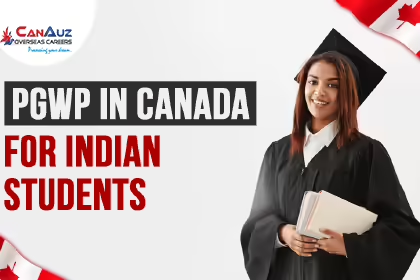
Immigration officials at the federal and provincial levels are in talks to significantly alter the qualifying requirements for Post Graduation Work Permits (PGWPs). International students who have finished an approved course of study at a Designated Learning Institution (DLI) are eligible for the PGWP, an open work permit.
Canada immigration system will try to match the issuance of PGWPs to labor market needs, facilitating “access to work permits for students entering occupations in shortage, while reducing access for graduates from other programs,” according to notes from the IRCC Deputy Minister Transition Binder 2024.
“The Minister will provide advice on this issue in spring 2024, with the goal of implementing changes in January 2025,” the Binder states.
An internal survey document from Immigration, Refugees and Citizenship Canada (IRCC) that was recently distributed to pertinent parties brought even more attention to this news. This document asked for comments from stakeholders and disclosed some of the strategies the IRCC will employ to match educational initiatives with PGWP availability.
How would the IRCC put these additional limitations on PGWP into effect?
Notes from the internal survey records provide some clues, albeit it is unknown exactly how the immigration service will carry out these adjustments.
The internal document states that in order to better understand which educational programs give international students the necessary training and experience to contribute to in-demand sectors of the Canadian economy, both the IRCC and Employment and Social Development Canada (ESDC) have mapped job titles to programs of study.
This was accomplished by bringing Canada’s Classification of Instructional Programs (CIP) and National Occupation Classification (NOC) systems into sync. While the CIP system performs a similar role for educational programs, classifying them by field of study, the NOC system is utilized in Canada to categorize and classify vocations. The “carpenter” NOC is linked to “three programs of study: construction trades, carpentry, and woodworking/general,” as an example given in the internal document.
Why is the IRCC working to modify the PGWP program in this way?
In summary, the IRCC notes that the objective of realigning labor market needs is to make it easier for students to get work permits for occupations where there is a scarcity, while restricting access for graduates of other programs.
The PGWP program in Canada was last revised in 2008 to allow international graduates to receive open work permits contingent on the duration of their studies. The PGWP saw a 214% increase in the number of work permits issued between 2018 and 2023, according to the IRCC.
The government’s additional intentions may be revealed by the radical modifications that the IRCC announced concerning temporary resident levels in Canada (those with a work/study permit, guest visa, or electronic travel authorization (eTA)).
The IRCC made the historic decision to declare the implementation of temporary resident levels to be included in the annual Immigration Levels Plan—for the first time in the history of the nation—following the announcement of an international student cap in January 2024. This move was made possible not only to prioritize hiring citizens and permanent residents for jobs, but also primarily as a way to ease the burden on Canada’s social systems, such as housing, healthcare, and other services, which have been under a lot of strain due to the country’s annual decrease in the number of new temporary residents.
Know about Canada Express Entry
Implications for immigration
One of the most important ways for foreign graduates working in Canada to increase their eligibility for numerous permanent residence (PR) programs is to obtain work experience through the PGWP. For instance, in order to be able to qualify for many federal and provincial economic PR programs—for which overseas graduates are typically excellent candidates—graduates must typically have completed at least one year of relevant work experience.
If implemented, these suggested modifications to the PGWP program would probably have an impact on immigration downstream, even for individuals who are already enrolled in Canadian universities at the time of the changes.
Contact us to get free consultation for visa and immigration in Hyderabad : +918688316151
Contact us to get free consultation for visa and immigration in Vishakhapatnam | Vizag : +91 86883 16154
Ref: cicnews.com
